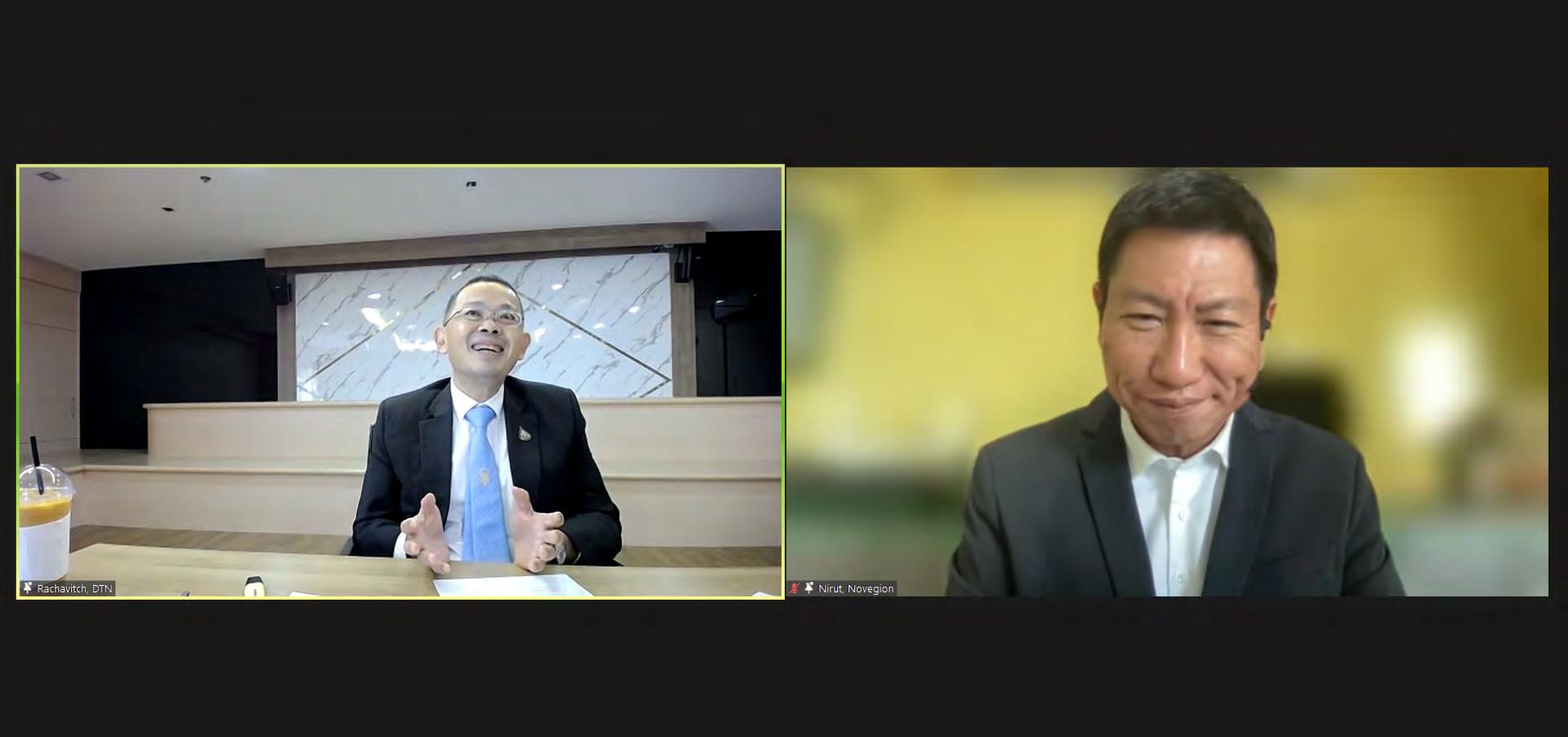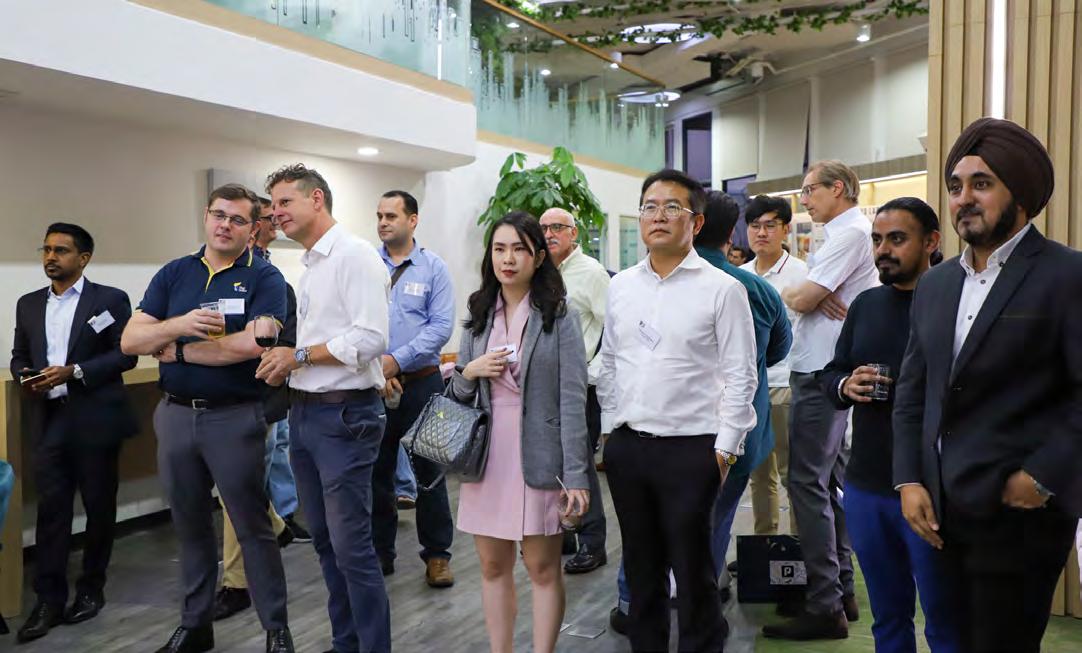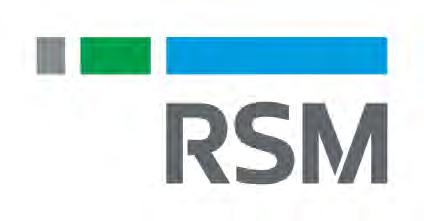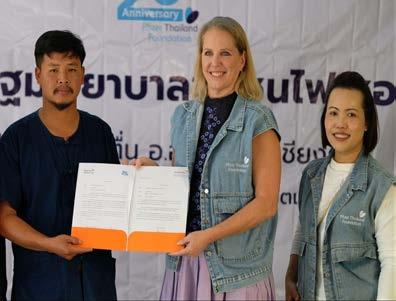INSIDE THIS ISSUE:
THE CHANGING INVESTMENT MIGRATION LANDSCAPE IN THAILAND


A LETTER FROM THE GOVERNMENT AFFAIRS DIRECTOR’S DESK
THE RISE OF REMOTE WORK AND ITS RECENT LEGISLATION
IN THE SPOTLIGHT: MARTY SINTHAVANARONG

INSIDE THIS ISSUE:
THE CHANGING INVESTMENT MIGRATION LANDSCAPE IN THAILAND


A LETTER FROM THE GOVERNMENT AFFAIRS DIRECTOR’S DESK
THE RISE OF REMOTE WORK AND ITS RECENT LEGISLATION
IN THE SPOTLIGHT: MARTY SINTHAVANARONG








PRESIDENT
Ornkanya (Mook) Pibuldham, Bank of America N.A.
VICE PRESIDENTS
Jeffrey Nygaard, Seagate Technology
Arpaporn (Gift) Samabhandhu, Johnson & Johnson
Deborah Seifert, Pfizer

John Evans, Tractus
TREASURER
Kaveepan Eiamsakulrat, The K.E. Group
SECRETARY
Eliot Delunas, Nitro Labs
GOVERNORS
Wiyada Srinaganand, 3M
Jamie Brennan, Amazon Global Selling
Chatit Huayhongtong, Chevron
Tanapot Parksuwan, Citibank N.A.
Simon Denye, Harmless Harvest
Rachel Davidson, Hilton & DoubleTree Sukhumvit Bangkok
Charles Blocker, IC Partners
Aileen Chew, Mastercard
BOARD ADVISORS
David Lyman, Tilleke & Gibbins
AMCHAM President in 1975, 1986
EXECUTIVE DIRECTOR
Heidi Gallant T-AB

Letter from the Excutive Director
I’m writing this as I return to my desk after two back-to-back in person events, both of which were oversubscribed. It’s reminded me to encourage you to join the waiting list for any event where registration is full. We often have space open up closer to the event
date and we will reach out to you to see if you are still available to join us.
We also are very grateful for those of you who are helping to expand our community by referring to us new members - and to those who are posting positively about your AMCHAM experiences on LinkedIn, thank you!

We have a new member-get-member offer to share with you. It’s a great time to introduce potential new members, with almost 30 events on the calendar before the summer holidays get started.
If you are curious about Committee or Council Leadership with AMCHAM, committee observers are currently being added to our 25 groups to explore working more closely with AMCHAM in 2024. Along with the networking and professional development that AMCHAM Leadership brings, the people who serve AMCHAM – more than one hundred strong - build our annual strategy and are listed on the AMCHAM website. Join us at JUSTMAG on June 14th to network with current leaders.
As always, the team and I are at your service if you have feedback, advice or questions for us. We look forward to seeing you soon!
Editorial Advisory Board: Heidi Gallant
Editorial Team:
Varsha Wadhwani, Gawinnart Phupianlert
Sincerely,
Heidi Gallant Executive Director
As the world experiences democratization of wealth, the number of high-net-worth individuals (defined as those with net assets of 1 million US Dollars or more) is expected to increase dramatically. According to the Henley Private Wealth Migration Dashboard, from Europe to Asia, Australia, Africa, and the USA, high-net-worth growth is forecasted to increase significantly by 2031. Moreover, the investment landscape for wealthy individuals and families is evolving, with investors moving away from the traditional assets and portfolio construction principles held by previous generations. This shift has led to a growing interest in alternative assets, with topics such as cryptocurrencies, non-fungible tokens (NFTs), vintage wine, and whisky funds dominating the business news cycle, as investors focus on diversification of assets.

The concept of investing in alternative residences and obtaining additional citizenships is becoming increasingly popular among wealthy families
around the globe. With growing concerns such as climate change and the war in Europe, investors are seeking ways to diversify their portfolio and protect their assets against future risk. Moreover, advancement in technology and the impact of the pandemic have demonstrated that working remotely, either from home or another country altogether, is more possible than ever, making freedom of mobility one of the top alternative assets to invest in.

On a macro level, these issues and trends are global. In Thailand, the number of high-net- worth individuals is set to increase by 30% by 2031, who are turning to residence and citizenship by investment for additional, country-specific reasons. Top of the list are economic uncertainty and political concerns.
Another interesting trend that is emerging in Thailand is the generational divide, as the younger generation seeks to expand their horizons and explore opportunity abroad through education and work experience. It is no surprise that those who study and work overseas, even for a period of time, enjoy far better financial prospects both abroad and when they return to Thailand. Thanks to technology, the youth are now able to access information and news from around the world with a single click, leading to a positive shift in attitudes towards international exposure and opportunity. It is important to note that while alternative most and citizenship options certainly offer families the flexibility to relocate quickly, the majority of individuals adding mobility to their portfolios are doing so as a hedge against future risk, rather than as a means to flee for greener pastures.
So where are Thai families considering their alternatives? The answer is layered. When it comes to wealth planning for future generations, Europe is often a top choice. This is due to Europe’s high standard of living, premium education, healthcare, and financial systems that make it an appealing destination for long-term investment. Europe is also a destination favored by retirees looking to settle in a warm, safe, culturally diverse, and tolerant environment. Greece, Malta, Italy, Spain, and in recent years Türkiye are all viewed as ‘golden visa’ jurisdictions for retirement. These destinations have attractive real estate-linked investment migration options, expanding the possibilities of where these investors and their family can live, study, conduct business, invest, and retire.
When it comes to tax-planning strategy, many high-net-worth families are moving to the UAE. This is due to the country’s attractive lifestyle benefits and highly favorable tax regime, which is no personal income, capital, net worth, or withholding tax except for those levied in the domestic banking and oil sectors, and several


double-tax treaties in place. The UAE recorded the highest net inflow of high- net-worth individuals globally in 2022, with an impressive 4,000 USdollar millionaires relocating to the country.
Finally, the Caribbean Island nations of Antigua and Barbuda, Dominica, Grenada, St. Kitts and Nevis, and St. Lucia all provide highly appealing citizenship opportunities at competitive pricing. All five passports offer visa-free access to the United Kingdom and the right of free movement in Europe’s Schengen Area. For many high-net worth individuals, the Caribbean citizenship by investment programs remains most efficient way to access the UK and Europe visa-free, It is often the first choice before building their ultimate portfolios of complementary residences and citizenships.
For families looking to provide better access to education for their children, many consider a US, UK, Canadian, or Australian residence, as family members are included and their children may attend university without obtaining a student visa. Additionally, residence permit holders have the right to work without sponsorship, a significant benefit as it is difficult for newly graduated foreigners to secure entry-level job sponsorship. Furthermore, although this varies by program, generally after five years of legal residence, you are eligible to apply for citizenship.
With unprecedented and a plethora of investment migration opportunities, high-networth individuals and families are increasingly opting for alternative residence and citizenship. Whether the motivation for investing is mitigating risk, access better education, or seek new business opportunities, the benefits of domicile diversification are clear: providing families with freedom.

Thomas Wong. As a Business Development Manager with Henley & Partners, Thomas Wong focuses on working with high-net-worth individuals and their families to expand their citizenship and residency options around the world for various purposes including security, privacy, estate planning, and lifestyle benefits.












 By Nam-Ake Lekfuangfu and Theeranit Pongpanarat, Baker McKenzie
By Nam-Ake Lekfuangfu and Theeranit Pongpanarat, Baker McKenzie
Remote work has become an established concept and has been a growing trend around the world for some time due to technological advancements and the rise of the gig economy. However, the pandemic has significantly accelerated its adoption, given widespread quarantines and lockdowns, to the extent that it has become the new normal for many even as the global threat of Covid-19 has diminished. The growing popularity of remote working has resulted in legislative changes in many countries to address the shift in traditional employer-employee relationships and the associated issues with remote work.
Thailand is no exception. A new amendment to the Labor Protection Act (LPA) to facilitate remote
work in Thailand was introduced through the new Section 23/1, which came into effect recently, aligning with the global trend and providing alternatives for employers and employees regarding employment arrangements.
On one hand, it could be argued that remote working arrangements provide a win-win situation by reducing costs associated with maintaining office space for employers while allowing for a more flexible schedule for employees to achieve a better work-life balance. However, there are potential risks and challenges that employers need to consider. These include working hours and break hours, equipment, work injury/ compensation, and data security issues, which can be difficult for employers to manage and control.
Some of these issues have been addressed in the amended LPA. Section 23/1 primarily states that employers and employees can agree to allow employee to perform work, that can be done outside of the business premises or office of the employer with convenience, under their employment, or as agreed with the employer to be performed at the employee’s home or residence or anywhere remotely using information technology.
In this regard, employers must prepare a written agreement that includes details such as the starting and ending work period, working days and hours, rest periods, and overtime work; scope of work, control and supervision, and duties to provide work equipment, among others. Employees who work from home, residence or anywhere using information technology must have the same rights as employees who perform work at the employer’s workplace or office.
The amended LPA has introduced an intriguing concept of “the right to disconnect” for remote workers. Given that working hours and break time can easily blur while working from home, employees may receive work calls after office hours, making it difficult to take a break from work. The right to disconnect allows employees working outside of their employers’ premises to refuse contact from the employer, including the chief, supervisor, or work inspector, after normal working hours. This concept has already been introduced in various jurisdictions and is also present in the new Section 23/1.
As we can see, there are several issues that employers need to consider when agreeing to implement remote working arrangements. It

must be noted, however, that this provision is not mandatory. The amended act aims merely to facilitate agreements between employers and employees regarding such arrangements.
Employers who have already adopted work-fromhome or remote working arrangements may need to review their existing employment contracts, policies, and regulations in light of the new Section 23/1 to determine if revisions are necessary.

Employers who have not yet adopted a workfrom-home policy or agreement may also need to consider whether they would like to implement this and what documents would be involved.
As the law is new, we will need to consider further guidelines from the Ministry of Labor and the Welfare Department. For example, it remains unclear whether remote working arrangements must fulfill all the conditions stated in the law, such as being for the benefit of the employer’s business operations and promoting the work and quality of life of employees, or it must be cases of necessity, for it to be legally valid and enforceable. Moreover, must work from home agreement be done explicitly in writing, or is implied consent acceptable as a form of agreement? The aspect of information technology is also interesting as it
raises questions about whether employees who work outside the workplace, such as at cafes or co-working space, and do not use any information technology are covered under the law. In terms of the right to disconnect, can employers contact remote working employees to work without their consent in case of emergencies, and what would be considered as the employee giving consent?



It remains to be seen if the relevant guidelines will provide clarity on the above-mentioned and other relevant matters. However, what is clear is that remote working is not just a trend and is here to stay.












Videogame athletics or ‘esports’ are a vibrant and growing part of the Southeast Asian sports markets, both in Thailand and beyond. But what do you need to know about them?
Electronic sports (esports) are a form of athletic competition using video games. Esports usually involves organized, multiplayer competitions between professional teams who compete in video games for prizes. Esports can be played on various platforms, including personal computers, consoles, and mobile devices. Esports also spans diverse genres and has attracted a wide range of players and fans.
Born in Asia in the aftermath of the 1997 financial crisis, esports is now a global phenomenon. Game developers and publishers host esports leagues and globe-spanning tournaments, attracting massive virtual and physical audiences. The 2022 World Championships for League of Legends, a battle arena sensation developed by Riot Games, attracted 5.1 million concurrent viewers. Streaming platforms like YouTube and Twitch are
integral to esports’ popularity, allowing fans to tune in wherever they are in the world.
Esports have the potential to become a mainstream form of entertainment, with its combination of high-level competition and engaging gameplay attracting the younger demographics coveted by advertisers. Its growth is spurring innovation in the gaming industry as developers create new games and features specifically designed for the esports market.

The explosion of broadband internet in the late 1990s gave aspiring gamers unprecedented access to online competition. In South Korea, gaming cafes cropped up everywhere, fueling the rise of early esports games like StarCraft. The term esports itself was first coined in South Korea, the brainchild of Park Jie-Won, a former Minister of Culture, Sports, and Tourism.
Thailand officially recognized esports in 2021, and now supports athletes through Sports Authority of
Thailand and the Ministry for Tourism and Sports. The Asian market now commands roughly 57% of the 1.1 billion US Dollars global esports scene, with 1.6 billion players. The region’s professional teams enjoy unprecedented success, regularly securing world championships in popular games like League of Legends.
Thailand, with 32 million gamers, is the largest esports market in Southeast Asia and is experiencing tremendous growth in mobile gaming, as 5G networks proliferate. 88% of Thai esports fans use their phones to play and watch esports, often on YouTube or Twitch. Thailand has hosted esports tournaments like Defense of the Ancients competitions, and the fast-food conglomerate KFC recently bought naming rights to Talon Esports, a Thai team.

As esports explodes, so have controversies like doping, match-fixing, and cheating. Players have thrown matches for money, exploited in-game bugs to gain unfair advantages, and used banned substances to increase focus and performance.
The lack of an accepted global sanctioning body is a key problem. Currently, esports has no court of final appeal like the Court of Arbitration for Sport. Game publishers and tournament organizers
routinely battle for power to hear and decide controversies. Gaming companies often keep matters in house, using policy arms to handle governance issues. This creates a splintered state of play with little decisional consistency and weak global governance. Independent commissions do exist; however, these institutions depend on industry participants for buy-in, which means their authority is often uncertain and incomplete.
Arbitration is a form of alternative dispute resolution allowing parties to resolve their problems privately, outside the ambit of traditional courts. Arbitration is particularly well-suited for esports, a nascent industry that is still developing a body of rules and regulations. Controversies are common, and formal methods of resolving those controversies are not yet set.
For esports participants, arbitration offers the following benefits:
Customized Proceedings: Parties can customize the proceedings to fit their needs, including by choosing arbitrators and attorneys who boast specialized technical knowledge and a familiarity with the esports scene.

Privacy: Arbitration is usually private and confidential – ideal for the world of esports, where reputations and sponsorships can be easily damaged by public disputes.
Speed and Cost: Arbitration is often faster and more cost-effective than litigation, making it attractive for parties who need quick ends to controversies or who cannot afford protracted court procedures.

Legal Surety: Arbitral awards are enforceable in courts as final judgments protecting parties’ legal rights.
Commercial arbitration, however, is not a complete substitute for an accepted global sanctioning body. As esports continues to professionalize, more disputes will arise on an array of issues. A single dedicated global institution could provide
a clear, competent, and unbiased forum for settling these issues. It could establish consistent standards and procedures for resolving disputes in the esports industry. Over time, this precedent and practice will promote trust and credibility and could ensure the mainstream acceptance of esports as a legitimate form of competitive sport. The Court of Arbitration for Sport (CAS) can serve as the final appellate body for any sporting organization, if specified by that organization’s regulations. Additionally, CAS’s commercial arm routinely hears disputes arising out of normal commercial dealings like sponsor partnerships and athlete contracts. However, even though CAS makes a point of interpreting “sport” broadly, it has not yet recognized esports and has yet to arbitrate any esports decisions.
In the absence of a global body, regional esports centers may prove useful. In Thailand, the Thailand Arbitration Center (THAC), has an arm devoted to sporting disputes, which can also handle esports matters.


As esports continues to professionalize, more disputes will arise on an array of issues. Neutral forums are important, particularly in cases of cheating or other misconduct. A single dedicated global institution could provide a clear, competent, and unbiased forum for settling these issues.
This article has been edited for T-AB magazine. The full article and references are available here.

The American Chamber of Commerce in Thailand Foundation (ATF) welcomed its scholarship recipients for 2022-2023 academic year for a twoday orientation camp in Bangkok. Over two days the students attended several workshops and activities aimed at providing them with valuable training on key career and life skills to prepare them for their journey into the professional world. These included CPR training, basic personal finance, tips for standing up to street harassment, and lessons for responsible drinking through DrinkiQ.

“Our ATF Scholarship program and associated camps are designed not only to support academic pursuits but also to equip students with the tools they need to navigate life,” said Heidi Gallant, the Vice President of the ATF and Executive Director of the American Chamber of Commerce in Thailand (AMCHAM). “Our member companies take the initiative to raise critical funds for the program, they provide their resources to conduct essential
personal and career development workshops with these students, and they generously sponsor gifts for the student goody bags.”
Ratanawadee Bansit of Dale Carnegie organized the ice-breaker activity, while First Aid Training Bangkok conducted the CPR training workshop. Anuntapong Chuen-Im of Mula-X led the basic personal finance workshop, covering topics such as budgeting and saving. The standing up to street harassment workshop by Thanawadee Onginsea of Raks Thai Foundation equipped students with skills and knowledge to address street harassment and create a safer community. Lastly, the DrinkiQ workshop by Shutchada Chandrangsu and Khemika Ratanakul of Diageo, aimed to educate students on the risks of excessive alcohol consumption and how to stay safe if they choose to drink.
The workshops were well-received by the scholarship recipients, who found them to be
informative and practical. “As someone from the countryside, coming here has given me the exposure and new opportunities, such as meeting and making new friends, exploring an urban city, and developing a deeper understanding of my peers” said Ratanaporn “Fern” Hanhow, a scholarship recipient from Ubon Ratchathani Rajbhat University. Kanjanarat Grishonwong from Kasetsart University added “In addition to being exposed to a new environment and making new friends, I am grateful to have met like-minded
individuals who possess strong leadership skills and confidence.”

The ATF is dedicated to supporting financially disadvantaged students who deserve academic and professional opportunities. By working together with member companies and conducting a range of workshops and activities, the ATF is providing its scholarship recipients with the tools they need to succeed and make a positive impact in their communities.




Jen Meckhayai is AMCHAM’s newly appointed Government Affairs Director. Prior to his role at AMCHAM, Jen was the Executive Director of CanCham Thailand.


Believe it or not, it is already mid-year! It has been a great honor to serve AMCHAM members as the newly appointed Government Affairs Director. The first quarter was so active that we accomplished 17 government engagements, far exceeding the previous year’s benchmark. I want to thank our members for their continued support in strengthening AMCHAM’s advocacy efforts and our relationship with the Thai Government, and to our Government Affairs team for their dedication and hard work in achieving our goals.
On March 30, AMCHAM President Ornkanya (Mook) Pibuldham represented AMCHAM’s stance on the ease of doing business to ten political parties hosted by the Thai Chamber of Commerce. Her insightful comments were aligned with those of other local industry representatives, touching on critical topics such as the regulatory guillotine, increasing costs of energy and renewable energy, careful consideration of minimum wage increases, and facilitation of digital services and the intellectual property patent process. I am certain that we will continue to work together to amplify our voice and drive change. As a thought leader, AMCHAM remains committed to advocating for our members and driving forward solutions for member concerns.
The moment of truth is on May 14. Regardless of the results, AMCHAM remains nonpartisan and apolitical. We believe in working collaboratively with government and we hope that our comments on the ease of doing business delivered by our President on March 30 will be implemented. Once the government is formed, we remain committed to working on behalf of our members to build a strong relationship with policymakers. This includes requesting meetings and bringing our members’ concerns and recommendations to the government on a regular basis. Our Government Affairs team works closely with our members through monthly meetings with industry groups in order to advocate for issues that affect the majority of our members.
If you have any issues that you would like to raise and discuss with other members, please join our next council or committee meetings.
Sincerely,
Jen Meckhayai
On March 29, AMCHAM members gathered at The St. Regis Bangkok to hear from Prof. Dr. Thitinan Pongsudhirak and Dr. Supavud Saicheua on what US businesses should expect after the elections in May.




Dr. Thitinan who is the professor of international relations at Chulalongkorn University, provided background on past Thai elections, helping members understand the implications of the upcoming election. He also provided insights on Thailand’s political landscape after the election, as well as the country’s foreign policy and international relations.
Dr. Supavud, an advisor to Kiatnakin Phatra Financial Group, led attendees through the economic outlook and explained what US businesses can expect from the government’s economic policy and focus after the elections. Following their presentations, the speakers joined a panel discussion, moderated by Shawn Crispin, Southeast Asia Editor of Asia Times where they answered attendees’ questions.
Additionally, the event served as AMCHAM’s Annual General Meeting, where members approved the 2022 President’s report, 2022 audited financial statements and the auditors for 2023.










On March 30, AMCHAM Trade and Investment Committee Co-Chair, Nirut Kunnawat of Novegion Consulting and Services, welcomed Minister, Permanent Mission of Thailand to the WTO and WIPO (Bangkok Office) under Ministry of Commerce Rachavitch Piyapramote to AMCHAM Virtual Membership Meeting.


During the meeting, Minister Rachavitch presented several updates on trade negotiations including
Thailand’s Free Trade Agreement (FTAs), Regional Comprehensive Economic Partnership (RCEP), Indo-Pacific Economic Framework (IPEF), as well as Thailand’s APEC priorities in 2023.
During the question-and-answer session, AMCHAM members were able to learn about Thailand’s perspective towards IPEF, the development of Carbon Border Adjustment Mechanism (CBAM), and more.
On April 18, AMCHAM joined a roundtable meeting with the USTDA. AMCHAM member companies had an opportunity to voice their opinions on the current government procurement landscape and suggest ways to enhance US companies’ ability to participate in government procurement.





On April 20, AMCHAM Vice President Deborah Seifert, together with AMCHAM Board Governor Rachel Davidson, and Co-Chairs of the Healthcare Council, met with Deputy Bangkok Governor Dr. Tavida Kamolvej at Bangkok City Hall.




The discussion covered topics of cooperation on supporting mobile medical units of the Bangkok Metropolitan Administration (BMA) and promoting tourism in Bangkok. AMCHAM Thailand affirmed
its readiness to collaborate with BMA to increase access to healthcare for all in Bangkok area and to create a pleasant tourism experience for all tourists. Both parties agreed to organize site visits at mobile medical units to explore more opportunities for cooperation to develop the units. The Deputy Bangkok Governor welcomed active support from AMCHAM’s business community to advance Bangkok as a livable city for all.



My first involvement with AMCHAM was when Gulf Energy Development became a member in March of 2021. That was a unique moment in time because it was during Covid-19 and let us just say, I quickly became involved in this terrific organization through Zoom! Throughout the lockdown, AMCHAM did not disappoint, as online events kept coming to help members stay active and engaged with AMCHAM. It was a perfect opportunity for members to learn about each other’s companies and their own roles within the companies they represent.
Describe one beneficial aspect and one challenging aspect of doing business in Thailand?
One beneficial aspect of doing business in Thailand is that people are eager to make deals happen. Thais are flexible towards foreigners who are new to the country and are always willing to help and respectful. Moreover, when people make mistakes, Thais are very forgiving and we have the expression “mai pen rai” which means, “it’s okay”!
However, the challenging aspect of doing business in Thailand is navigating through the web of contacts that try to help you achieve your goal and doing your best to thank everyone who helped for their kind support.
The network is the golden key benefit of AMCHAM. It is the first Chamber of Commerce in which I participated, and the introductions that fellow members have made are invaluable. Through AMCHAM, we have connected with outstanding leaders of US companies doing business in Thailand, and some of these relationships have grown into incredible friendships.
In addition, as a Trade and Investment Committee Co-Chair, I am thrilled to be actively helping AMCHAM’s leadership support our growing membership.
On behalf of Gulf Energy Development, I thank AMCHAM for all the support provided to our company and the US-Thai business community. I look forward to building more terrific friendships!



Kasetsart University’s Faculty of Education visited Bangkok Patana School to learn more about British educational management. The visitors included five PhD students and one Assistant Professor from the Faculty of Education. During their visit, they explored several key areas of interest, including overall school curriculum management, the development and current trends in school curriculum management, highlights of Bangkok Patana School’s approach to curriculum management and comparative analysis of school policies.
While on campus, the visitors had the opportunity to learn how Bangkok Patana School integrates its values throughout both the curriculum and school environment. The School Management team is always happy to welcome visitors, as it further strengthens their commitment to educational
development and support of the local community. These visits also provide an opportunity for Bangkok Patana School to share best practices. Through the exchange of ideas and educational standards, schools within the community can work together towards improved educational integrity.

also in fostering a culture of diversity, inclusivity, and interconnectedness. Our newly launched IDEALS policy represents our unwavering commitment to creating a welcoming environment that celebrates differences and fosters a sense of community.” said Professor Ian Fenwick, Director of Sasin School of Management.
Sasin School of Management will be the first higher educational institution in Thailand to take the lead in creating a comprehensive diversity, equity, and inclusion (DEI) policy, called IDEALS (Inclusion, Diversity, Equity, and Access to Learning at Sasin). Working with Steps, Sasin will also launch the Neurodiversity at Work Research Centre (NWRC), Southeast Asia’s first research center dedicated to connecting workers with disabilities to meaningful employment as part of this initiative.
“At Sasin School of Management, we believe that true success lies not just in academic excellence, but
Sasin provides research support and advice to NWRC and works with specialists at Steps to improve access to work and increase inclusivity for neurodivergent people.
“Our extensive consulting experience with businesses on inclusivity shows us that the NWRC can be of immense value to the private sector, society, and most importantly, to neurodivergent people often excluded from the workforce,” said Max Simpson, Founder and CEO of Steps.
Visit sasin.edu/nwrc to learn more.


Cardiologist, Electrophysiologist and Director of the Bumrungrad Heart Institute led the medical team to launch its world-class
Heart Institute to research, invent, and develop innovative and clinically effective techniques to treat all heart conditions.
Recently, Artirat Charukitpipat, CEO of Bumrungrad International Hospital, Associate Professor Dr. Taveesin Tanprayoon, Chief Medical Officer of Bumrungrad International Hospital, and Professor Dr. Koonlawee Nademanee,


The Institute specializes in treating coronary artery diseases, arrhythmia, advanced heart failure and heart transplantation, structural heart disease, cardiogenetic, and congenital heart disease. The Institute also delivers cardiac screening and preventive care. Bumrungrad Heart Institute has achieved its goals and success in delivering truly world-class care while striving to maintain the best patient satisfaction.


Speakers: John Andes and Supanich Taweesuksirianan of KPMG in Thailand
Moderator: AMCHAM Tax Committee Co-Chair Jonathan Stuart-Smith of Mazars
Organized by: Tax Committee
Event Highlights:
The event provided a detailed explanation of the Stamp Duty process and its impact on businesses, highlighting key issues for engagement with the Revenue Department through relevant cases.

Following the presentation, an interactive question-and-answer session and open discussion allowed AMCHAM members to deepen their understanding of the topic.


Event Highlights:
AMCHAM hosted the New Member Orientation prior to the Annual General Meeting (AGM) to welcome new members of 2023. AMCHAM members, both old and new, had an opportunity to meet with the AMCHAM Board of Governors, AMCHAM staff, and member peers to learn more about getting the most out of their membership. The participants also had a chance to exchange contacts and expand their business connections.




Speakers: Dylan Keota of ECG Venture Capital; Phoorin Rungsipanodorn of Development Bank of Thailand; and Prabhav Rakhra of Salary Hero.
Moderator: AMCHAM SBE Committee Co-Chair Edgar Salmeron of Plat Ventures
Organized by: Small Business & Entrepreneurs Committee
Event Highlights:
The SBE Committee’s first event of a four-part series focused on helping entrepreneurs and founders secure funds. Experts shared valuable insights to help small businesses and entrepreneurs in Thailand finance their ideas, understand economic growth, and effectively utilize funding.





Speakers: Mark Maclean of Deloitte and Maynica (Mae) Sachdev of Deloitte
Panelists: Arpaporn (Gift) Samabhandhu of Johnson & Johnson; Wanida T of Grab; and David Le Ny of Dextra Group
Organized by: Human Resources (HR) Committee
Event Highlights:
In this event, Mark and May of Deloitte shared key findings from the Global Human Capital Trends Report 2023 that examines the current state of human capital management, workforce trends, and talent strategies across organizations worldwide.


The event was followed by an engaging panel discussion led by Gift, Wanida, and David, moderated by Mark. The panelists shared practical examples of how these organizations are embracing agile workforce practices, prioritizing employee experience, investing in reskilling and upskilling, proactively fostering Diversity, Equity, and Inclusion (DEI), and preparing themselves as future-ready organizations.


Hosts: Ornkanya (Mook) Pibuldham of Bank of America; Simon Denye of Harmless Harvest; Rachel Davidson of Hilton & Doubletree Sukhumvit Bangkok; Arpaporn Samabhandhu of Johnson & Johnson; and Deborah Seifert of Pfizer.
Event Highlights:
AMCHAM Board Governors were delighted to welcome members to the Governors’ Table, where leading executives were able to connect over a leisurely dinner and engage in face-to-face networking with the premier business community.





Dow’s sustainability strategy is focused on three areas that are not only critical to our business but where we believe we can make a difference.
•Protect the Climate: By 2030, Dow will reduce its net annual carbon emissions by 5 million metric tons versus its 2020 baseline (15% reduction). By 2050, Dow intends to be carbon neutral (Scopes 1 +2+3 plus product beneffits).

• Transform the Waste: By 2030, Dow will transform plastic waste and other forms of alternative feedstock to commercialize 3 million metric tons of circular and renewable solutions annually.
•Close the Loop: By 2035, Dow will help “close the loop” by having 100% of Dow products sold into packaging applications be reusable or recyclable.



ANCOR Thailand, part of ANCOR Group, offers a variety of outsourcing, recruitment, and consulting solutions. In 2021 ANCOR was listed in the Top 30 Largest Direct Hire Staffing Firms Globally according to Staffing Industry Analysts.

Designate: Boonchanit Wangmanow, PR & Marketing Manager
Concentrix Corporation is a leading global provider of customer experience (CX) solutions and technology, improving business performance for some of the world’s best brands.

Designate: Kanokwan Suksawat, Director - Country Lead Thailand
Delta Air Lines is the US global airline leader in safety, innovation, reliability, and customer experience. Since the onset of the Covid-19, Delta has transformed the industry standard of cleanliness while offering customers more space across their travel journey.
Designate: Sarathool Monthienvichienchai, Managing Director
Prynceton provides the best quality products and services that are unique and commercially competitive with environment and sustainability in mind.

Designate: Nyoman Mahardika, Managing Director

RK Plastics Thailand is one of the most prominent roto-molded manufacturers of a comprehensive range of premium plastic goods and products. Today RK Plastics operates on 310,000 square feet of manufacturing facilities with an ingenious product assembly plant in Chonburi, Thailand.

Designate: Kawin Kalra, Director
RSM is a member firm of RSM International, the sixth-largest worldwide organization of independent accounting and consulting firms. RSM is represented by affiliate independent members in 120 countries and brings together the talents of over 43,000 individuals in over 800 offices.

Designate: Gareth Hughes, Managing Director
Teach For Thailand is part of Teach For All, an international network of independent organizations operating in 60 countries under a shared vision that all children should have access to excellent education. Over the past nine years, Teach For Thailand has reached more than 64,000 students through 440 fellows, empowered 99 schools and communities across 16 provinces in Thailand.

Designate: Isaree Wongkhwanmuang, Head of Partnerships
United Overseas Bank Limited (UOB) is committed to providing quality products and excellent customer service. It is a regional bank rooted in Thailand that brings financial expertise and connectivity to its customers. UOB (Thai) provides a nationwide network of more than 150 branches and its Call Centre.
Designate: Thanaporn Sakulkiatwatana, Vice Senior President












Omkoi, the southwestern district of Chiangmai province, is one of Thailand’s wilderness districts with majority populations of an ethnically distinct hill tribe Karen Extremely tough geographical condition makes Omkoi deprive of healthcare services Considering the great distance from the nearest facility of basic healthcare service center and a hospital, which is 3 hours from city center, PTF decided to build Pfizer first-aid centers at Baan Na Krai and Baan Khun Tuen each, as places to take care of their health and develop their healthier nutrition and eating habits.
There, the group had to change to suitable 4WD trucks before tackling an hour journey with the crisp, cool breeze from outside along the 20 kms bumpy, muddy road to each destination.




H Having had the chance to personally visit, I know we absolutely made the right decision in placing first aid centers within these communities, and I am immensely proud when I think of the impact they will have The first aid centers are one way we demonstrate our corporate value ‘Equity’ with the goal of helping to reduce healthcare disparities in Thailand
Seifert




By 2023, Pfizer Thailand Foundation will completely hand-over all 10 units to schools and communities across Thailand as planned and will continue to work with its partner to deliver greater things for the better health and well-being of communities and underprivilege populations in the country.
 Deborah Seifert, Country Manager of Pfizer Thailand/Indochina, and Pfizer Thailand Foundation (PTF) Chairperson led a group of PTF board members and colleagues to hand over Pfizer’s two first-aid centers to two schools and communities in the remote highland in Omkoi, Chiangmai.
Deborah Seifert, Country Manager of Pfizer Thailand/Indochina, and Pfizer Thailand Foundation (PTF) Chairperson led a group of PTF board members and colleagues to hand over Pfizer’s two first-aid centers to two schools and communities in the remote highland in Omkoi, Chiangmai.

























